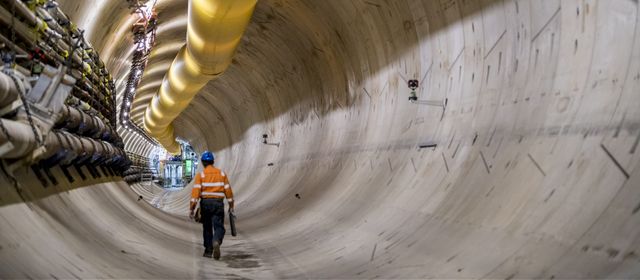Case Studies
The Construction Industry Leadership Forum will progressively release case studies to share learnings from its various activities.
Early Identification of Risk Initiative
Working in conjunction with the Construction Industry Leadership Forum, Sydney Metro ran a pilot program called the Early Identification of Risk Initiative on the Sydney Metro Western – Sydney Airport Station Boxes and Tunnelling (SBT) package.
The aim of the pilot was to involve industry in risk allocation through early and collaborative engagement with industry, the pilot aimed to provide better certainty for both government and industry on unknown risk and more certainty on the project cost.
The pilot comprised collaborative and interactive forums to engage industry in the key stages of the procurement processes. Outlined below are the forums and the outputs.
Forum 1
Comprising an open process, industry met to identify key project risks and potential mitigation strategies. Nine project risks were identified: site conditions and contamination; interface; utilities; geotechnical; design processes; COVID-19 impacts; cash profile; site access; completion and handover of portions. The forum was also used to explore different perspectives on collaborative governance, risk management, and risk allocation.
Significant identified risks and their mitigation strategies have been sorted in the below based on the stage at which Sydney Metro may seek to address them either by way of the Expression of Interest (EOI), Request for Tender (RFT) or during project delivery.
Commercial (pre contract)
- Contract: consider a more balanced and simplified contract form (RFT)
- Tender documentation: Streamlined tender documentation – e.g. roadmap, agreed reliance on certain documents (RFT)
- Escalation: Consider mechanisms used overseas (e.g. London indices). Clearer and more even-handed contract administration processes (e.g. for resolving claims (EOI, RFT)
- Consider portioning key risks that can’t be genuinely and accurately quantified at tender stage (EOI, RFT)
- Collaborative approaches, especially in terms of risk-sharing (e.g. for high impact-low profitability risks) (EOI, RFT)
Design
- Cutting back on processes that add cost and time (e.g. independent certifiers) (EOI, RFT)
Delivery
- Third party engagement: Greater access to/engagement from government agencies and other third parties e.g. nominate ‘champions’ or create Interdepartmental Steering Committee (EFT, Delivery)
- Creating an environment that enables timely decision-making (e.g. authorising project teams to make decisions, commitment from senior decision-makers to resolve early issues) (Delivery)
General
- Unified (mutually understood and applied) approach to accounting and scheduling (Delivery)
Forum 2
Shortlisted EOI participants tabled key risks and mitigations at the second forum. The focus was largely on the key risk of Western Sydney International Airport interfaces. The process for discussing key risks revolved around two key conversations: 1. Exploring Sydney Metro’s and the contractors’ perspectives on these risks; 2. Considering possible solutions for further clarifying or reducing the uncertainty of these risks including technical, legal, commercial and any other options. The forum also included a conversation between Sydney Metro and the contractors about their behavioural expectations of each party during the delivery phase in response to industry’s feedback that contract administration was a key risk from its perspective.
Feedback from Forums 1 and 2 was then collated and analysed, collaboration opportunities tabled, risk allocation and contractual mechanisms identified and draft RFT documents prepared.
Forum 3
The final forum was again held with shortlisted EOI participants focused on ground conditions, interfaces, early works, utilities, and the design process. Final draft commercial principles were presented for industry input. As with Forum 2, the conversations were structured in two phases: sharing perspectives and generating possibilities. The outputs of this forum included the validation of commercial and contractual mechanisms and final RFT documentation reflecting input from industry.
Outcome
The parties involved in the pilot found it successful in enabling the parties to explain and discuss how they felt risk should best be allocated and managed. This understanding and allocation of risk is the first step in a cooperative and collaborative tender process, providing better certainty of overall project costs and risks, increased productivity and greater value for money for government.
The Construction Industry Leadership Forum’s partners have flagged their interest in incorporating early risk workshops into future tendering processes.


